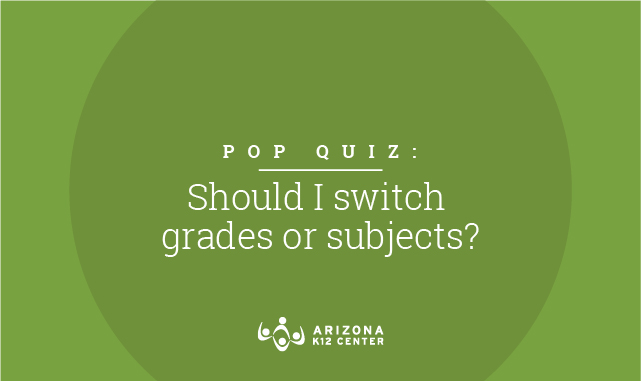Pop Quiz: Should I Switch Grades or Subjects?
One teacher warns: The grass isn't always greener (but it could be!).
Teachers should consider switching grades or subjects when they begin to rely on what they did last year, when they are no longer reflecting on how to make the lesson better, or how to increase student engagement.
Jennifer Robinson, Ed.D., NBCT
Principal, Maricopa Unified School District
I love Whitney Houston and this question reminds me of her song "How Will I Know?" If you are feeling that there is something more that you want, you are looking to push your boundaries, you want to support the grade levels before and after the one you are in, you have a passion for other subjects – then look to changing. It’s never a bad thing to gain experience, knowledge, and familiarity with all that teaching has to offer!
Elizabeth Rushton, Master Teacher
Instructional Specialist, Humboldt Unified School District
Are you in a rut? Need a new perspective? Excited to explore new curriculum?
Christie Olsen, NBCT, Master Teacher
Instructional Coach, Lake Havasu Unified School District
Give yourself time to reflect as to why you may want to switch. If it is because you want to challenge yourself or feel like you have lost a little of your spark and are looking for adventure, then it is definitely something to consider. If your considering because you had a challenging year and think another grade level may be easier, I strongly suggest you don’t rush into a decision and objectively weigh the pros and cons of changing. Each grade and content has its unique benefits and challenges. The grass isn’t always greener on the other side.
Robbie Ramirez, NBCT, Master Teacher
Curriculum Service Provider, Maldonado Elementary School











